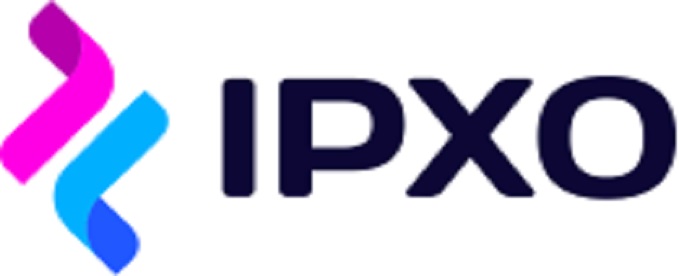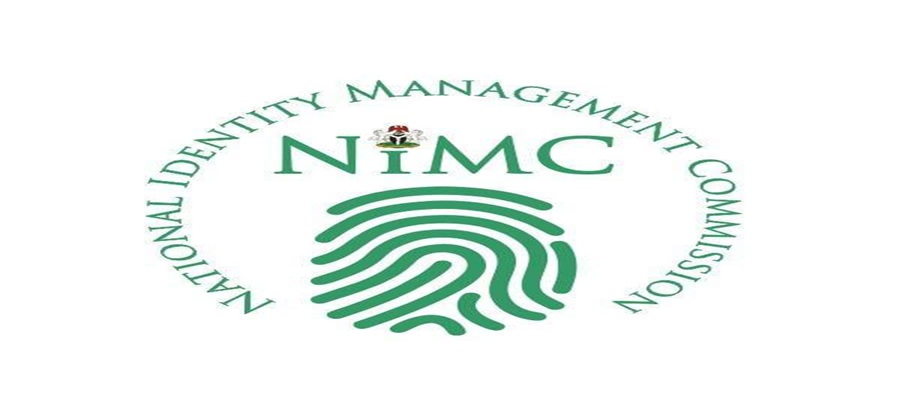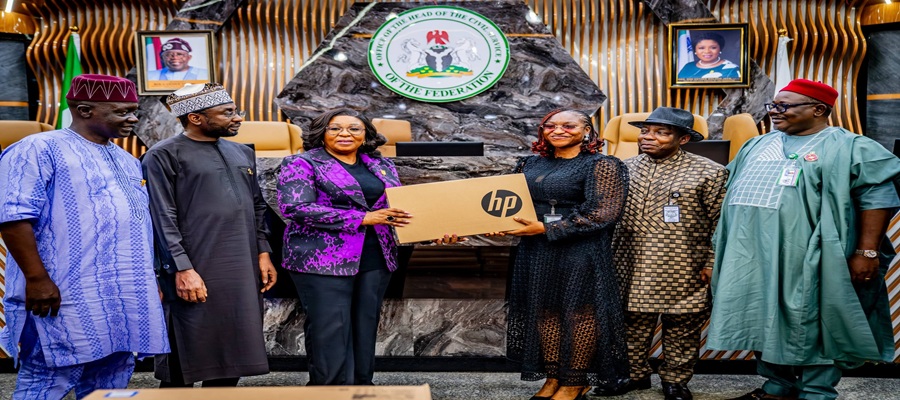Telecom
IPXO Launches Fully Automated Platform for IPv4 Address Leasing and Monetization

IPXO, an all-in-one IP address marketplace, has launched a new IP address management platform, which will enable companies to easily lease unused IP resources to businesses in need.

Consequently, by enabling “sleeping” IP assets to reenter the market, the platform will help alleviate the global IPv4 shortage problem, as well as present an opportunity to build new tools that would help unify the fragmented internet industry.
Since 2019, the pool of IPv4 resources has been completely exhausted.
The massive digitization, further exacerbated by the pandemic, has placed even more pressure on the already strained market, leading prices of the IPv4 address transfers to continue trending upward without a clear tipping point in sight.
This posed a need for an alternative market, which, according to Vincentas Grinius, CEO at IPXO, was one of the key factors driving the launch of the new IPXO platform.
“Having identified a gap in the industry, we wanted to present the network community with a reliable solution for SMEs and larger enterprises alike,” said Grinius.
“IPXO is working to enable IP monetization while connecting all Regional Internet Registries (RIRs), in turn providing more transparency and accountability in the industry.”
“Also, previously IP monetization required a lot of human resources. Thus one of the key points of focus while developing the platform was minimizing the effort needed from the IP lessors and IP lessees when listing and accessing the IPv4 resources.”
Increasing market accessibility
One of the major problems that IP resource businesses continue to face is poor market accessibility.
IPXO’s platform will address the issue by enabling businesses across the globe to interact, exchange resources and seek solutions to their IP needs in real-time.
“The platform will effectively solve market accessibility problems that the industry has grappled with for decades. This will go a long way to help startups and brick and mortar firms that are looking to digitize their operations, to gain easy access to IP resources at a relatively low cost,” Vincentas added. “Looking from a wider perspective, it will help bridge the global economy with the digital world more tightly.”
The innovative solution has already received positive feedback from some of its partners that had the opportunity to try out the platform during Beta-testing.
“We have been using IPXO’s solutions to obtain IP addresses quickly, in as little as a couple of minutes. This is invaluable, especially when, at times, we need to promptly change the IP addresses. Also, customer service is diligent and efficient when it comes to providing fast and clear solutions,” shared Pablo Hoffmann, director and founder of Zyte.
Having secured partnerships and long-term cooperation with several large enterprises, major ISPs, and RIR’s, IPXO has ambitious goals for the future.
One of them – to create the first Commercial RIR: a unified framework of existing RIRs adherent to their policy and compliance standards.
“There are still many gaps in the industry,” Grinius noted. “That’s why the ecosystem we are building is just the beginning of the roadmap we have for IPXO, as we aim to continue developing business-driven solutions that would help fill in the blanks,” he concluded.
Telecom
FG Seeks Private Sector Partnership to Bridge Broadband Gap

The Federal Government yesterday called on private-sector players to partner with it to close Nigeria’s last-mile broadband gap, saying that massive public investment in digital infrastructure must now be matched by device affordability, service innovation, and targeted connectivity for critical institutions.

The Minister of Communications, Innovation and Digital Economy, Dr Bosun Tijani, made the call while speaking with journalists on the sidelines of the Flagship Nigeria: Electrification + Connectivity Convening held in Abuja.
Tijani said Nigeria was currently leading Africa in deep digital infrastructure investments, stressing that improved access to quality internet would become visible over the next year as projects begin to come on stream.
“As a government, we’re very aware of our responsibility and the need to deepen access,” he said. “There is no country in Africa today that is investing in deepening its digital infrastructure as deeply as Nigeria is doing.”
According to him, Nigeria is the only African country investing in a 90,000-kilometre fibre-optic network project led by the World Bank, while also committing resources to two new communications satellites.
He added, “We’re the only country in Africa that is currently doing that, but also investing in two communication satellites. The only country that is also investing in an additional 3,700 towers for rural areas, which means we can now bring online about 20 million Nigerians that are currently unconnected at all.”
The minister recalled that when the present administration assumed office, the telecommunications sector was under strain.
He said the decision to allow a modest tariff increase had restored profitability and unlocked fresh capital inflows.
“When the telecommunication sector was struggling when we came in, we allowed for tariffs to go up a bit, which means they are now profitable. And on their own, we’ve seen that they’ve invested over $1bn into our economy as well,” he stated.
Tijani noted that infrastructure quality directly determines service quality, arguing that years of underinvestment had constrained broadband expansion.
“In the next couple of years or months, you will start to see improved access because the quality of access is dependent on the quality and investment in infrastructure, which, as a country, we’ve not done in many years in digital infrastructure. You’re about to see that change. In about a year, you start to see great changes because these infrastructures will start to come alive,” he said.
Beyond infrastructure, the minister emphasised that connectivity without skills would limit impact.
He said the ministry had separated digital skills for technology professionals from basic digital literacy for everyday users. He referenced the ongoing Three Million Technical Talent programme, which aims to train three million young Nigerians in advanced digital skills.
“This is a project that we started in 2023 that has trained over 150,000 people already. But we’re not stopping there,” he added.
For ordinary Nigerians, including traders and market women, Tijani said the government was preparing to launch a nationwide digital literacy programme delivered via mobile phones and local languages.
He disclosed that the initiative would leverage a government-backed large language model designed to understand and communicate in Nigerian languages.
On questions linking digital infrastructure to electronic transmission of election results, the minister declined to comment directly on electoral matters, insisting that his mandate was infrastructure development.
“Our role as a ministry, I will not speak to the elections, but my role is to deepen digital infrastructure. And we’ve been very clear about the fact that this is what the President has asked us to do,” he said.
He stressed that all ongoing projects had presidential backing and were aligned with the administration’s ambition to grow the economy to $1tn.
Every one of our digital infrastructure projects is a project that the President has approved. The President has a thorough understanding of the role of the digital economy in driving this agenda of the $1tn economy. And without our investment, the President knows that we can’t get there,” Tijani stated.
Speaking on the purpose of the convening, Tijani said that even with expanded fibre and satellite capacity, affordability and institutional connectivity remained major hurdles.
“If the internet is now ubiquitous and affordable, can every Nigerian also afford the right mobile phones, tablets, or laptops that they need to enjoy the internet? It’s not something you enjoy without those things,” he said.
He said bridging the last mile would require collaboration with private-sector players to connect schools, hospitals, security agencies, and other public institutions.
“How do we ensure that when we invest in the infrastructure, it gets into schools, not only universities, but also secondary schools across the country? That’s the last mile work that we need the private sector to do,” he noted.
He added that internet service providers must also design tailored packages for critical sectors.
“How do we ensure that we can support ISPs to make sure they have the right bundles and packages for hospitals, for police stations? These are things that we have to work with the private sector to achieve,” he said.
On the planned satellites, Tijani said Nigeria had been a regional pioneer since it first procured a communications satellite under former President Olusegun Obasanjo, noting that no other West African country currently operates one.
However, he acknowledged that the existing satellite had aged and required replacement.
“Our satellite is now old, and we need to procure new ones. President Bola Tinubu has approved that we should procure new ones. Satellite is one of the ways in which you can connect difficult-to-reach locations and rural areas. Also, the security agencies use our communications satellite deeply as well. So if we don’t have modern ones that can support all these efforts, it weakens our digital economy,” Tijani explained.
Providing timelines, the minister said the deployment of the fibre project was targeted for the second or third quarter of the year, while the new satellite was expected to become operational next year.
“We’re always very clear through our strategic blueprints that a fibre project, for instance, will get to the point where we’re deploying either by Q2 to Q3 this year, which is what we’re still working towards. That project is moving forward. We’ve been able to secure the bulk part of the funding,” he said.
“The satellite in itself, we expect, should come alive. We’ve now been able to select the companies that will provide it. We expect that it should be coming alive sometime next year.”
Also speaking, the Chief Executive Officer of the Partnership for Digital Access in Africa, Ibrahima Guimba-Saidou, said the convening aligns with Africa’s broader ambition to connect one billion people to the internet by 2030.
He commended Nigeria for what he described as a clear policy direction and significant investments in connectivity infrastructure, digital devices and skills development.
However, he warned that electricity remains a fundamental gap in the continent’s push for meaningful digital inclusion.
Guimba-Saidou explained that the organisation’s Mission 300 initiative is designed to expand electricity access in underserved and remote communities, enabling schools, health centres, markets and households to take full advantage of digital services.
“This is about making connectivity relevant to the people who need it the most, not just those in major cities,” he said, urging deeper collaboration between government and private sector players to narrow the digital divide in a faster and more sustainable manner.
In his remarks, the World Bank Country Director for Nigeria, Mathew Verghis, noted that while Nigeria faces some of the most significant electricity access and backbone infrastructure shortfalls globally, it also possesses vast growth prospects anchored on its large and youthful population.
He stressed that digital inclusion rests on three interdependent pillars: reliable electricity, broadband infrastructure and affordable devices.
According to him, progress in one area without the others would limit impact.
He called for better coordination in the planning, construction and financing of power and fibre networks, arguing that integrated investment would lower costs and accelerate universal access.
Verghis added that the World Bank remains prepared to work with federal and state governments, alongside private sector stakeholders, to translate the vision of combined power and broadband expansion into tangible benefits for millions of Nigerians.
Telecom
NIMC Flags Nationwide Ward-Level NIN Enrollment Drive from February 16

National Identity Management Commission (NIMC) has announced the commencement of a nationwide ward-level enrollment exercise for the National Identification Number (NIN), effective from Monday, February 16, 2026.

NIMC
The initiative follows a presidential directive mandating NIMC to extend NIN registration to grassroots communities and wards across the country, ensuring every Nigerian citizen and legal resident, including children and adults, is captured in the National Identity Database.
Head, Corporate Communications, NIMC, Dr. Kayode Adegoke, in a statement Wednesday, said the exercise is free of charge and aligns with President Bola Ahmed Tinubu’s Renewed Hope agenda, promoting inclusive governance, national development, and broader access to identity-linked services.
He described the ward-level rollout as a strategic decentralization effort to enhance identity inclusion, minimize travel challenges, and boost participation at the community level.
“NIMC encourages all yet-to-enroll Nigerians and legal residents to seize this opportunity for registration,” Adegoke stated, stressing its role in fostering nationwide identity coverage.
To guarantee hitch-free implementation, NIMC has launched sensitization campaigns engaging stakeholders at national, state, and local government levels.
These include state governments, local government heads, traditional rulers, community leaders, market associations, and faith-based organizations, all pivotal to mobilizing residents for the exercise.
Adegoke noted that rotational schedules for licensed front-end partners and NIMC personnel would guide operations across wards, with details accessible on the NIMC website: www.nimc.gov.ng.
Members of the public can dial the toll-free line, 08000616462, for enquiries, assistance, or complaints.
The commission urged massive turnout to register children, parents, and family members within local communities, positioning the drive as a pivotal step toward a fully identified populace.
Telecom
NITDA DL4ALL Delivers Digital Training to 10,000 Servants

National Information Technology Development Agency (NITDA) has achieved a significant milestone in the Federal Government’s digital transformation drive with the successful implementation of the Digital Literacy for All (DL4ALL) Workforce Programme across the Federal Civil Service.

NITDA
Implemented in strategic partnership with the Office of the Head of the Civil Service of the Federation (OHCSF), the programme has recorded exceptional reach, enrolling over 45,000 civil servants per course across four foundational digital literacy modules: Digital Awareness; Using Computers and Mobile Devices; Digital Content Creation, Communication and Collaboration; and Digital Safety and Security.
According to the DL4ALL Workforce Programme Final Report for 2025, enrolments ranged from 45,813 to 54,377 learners per course, representing an estimated 65–75 per cent coverage of the Federal Civil Service’s workforce.
Completion rates across the modules ranged from 38.1 per cent to 44.6 per cent, aligning with global norms for large scale voluntary online training initiatives. Importantly, the report shows that completion rates increased in the more advanced modules; an indication of stronger learner commitment, improved digital readiness and deeper skill uptake.
As a result, tens of thousands of civil servants have acquired foundational digital competencies, supporting the emergence of a reliable pipeline for intermediate and role specific digital skills development across Ministries, Departments and Agencies (MDAs).
Programme data further highlights that institutional leadership, and internal coordination played a more decisive role in learning outcomes than workforce size. While large MDAs such as the Federal Ministry of Education and the Federal Ministry of Defence led in overall enrolments and completions, several smaller institutions achieved completion rates exceeding 70 per cent, demonstrating the effectiveness of strong ICT leadership, dedicated Digital Literacy Champions and consistent performance monitoring.
Speaking during a courtesy visit and award presentation at the Office of the Head of the Civil Service of the Federation, the Director General of NITDA, Kashifu Inuwa, underscored the value of the Agency’s collaboration with the Cisco Networking Academy in delivering the programme.
He noted that the partnership enables civil servants to access high quality digital learning with minimal financial barriers, while creating a progression pathway into more advanced areas such as networking, cybersecurity, data fundamentals, programming, and emerging technologies, beginning in 2026.
With the foundational phase of DL4ALL firmly established, NITDA’s priority areas for 2026 and subsequent years include:
• Advancing from basic digital literacy to job relevant and role based digital skills.
• Institutionalising the Digital Literacy Champion model across MDAs.
• Strengthening monitoring and data driven decision making via the national DL4ALL digital dashboard.
• Supporting civil servants to advance towards certification ready digital competencies.
These efforts reinforce the Federal Government’s ambition of attaining at least 70 per cent digital literacy by 2027, while positioning the Federal Public Service as a more efficient, technology driven and citizen centred institution.
As NITDA continues to deepen collaboration and refine implementation strategies, the DL4ALL Workforce Programme stands firmly as a transformative platform for sustainable public sector capability enhancement—placing people, skills and digital readiness at the forefront of Nigeria’s governance modernisation agenda.

 General News3 days ago
General News3 days agoCBN, NCC Propose Instant Refunds for Failed Airtime, Data

 Telecom3 days ago
Telecom3 days agoSafer Internet Day: Sophos Warns – 42% Attacks Hit Stolen Logins in 2025

 News3 days ago
News3 days agoEcobank Nigeria to Host Customer Forum on Strengthening Regional Integration for Economic Transformation

 News3 days ago
News3 days agoLagos to Establish West Africa’s Premier International Financial Centre

 Telecom2 days ago
Telecom2 days agoInside Nigeria’s Telecom Exploitation Crisis Draining Household Budgets

 General News3 days ago
General News3 days agoFG Launches the Happy Woman App Platform

 News3 days ago
News3 days agoLasaco Assurance Gets Shareholders Approval to Advance Capitalization Plans

 Telecom3 days ago
Telecom3 days agoAirtel Achieves 99 Per cent 4G Coverage across Nigeria





















